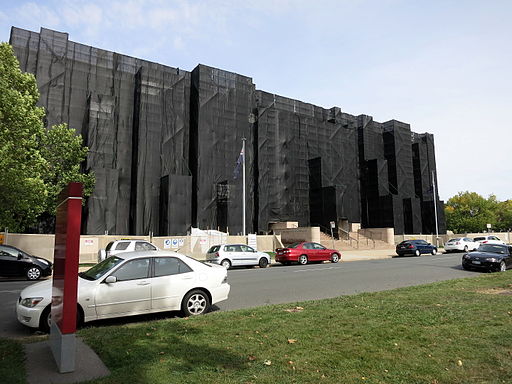![By Nick-D (Own work) [CC BY-SA 3.0 (http://creativecommons.org/licenses/by-sa/3.0)], via Wikimedia Commons 512px-John_Gorton_Building_March_2014](https://www.governmentnews.com.au/wp-content/uploads/2015/08/512px-John_Gorton_Building_March_2014-287x215.jpg)
There’s a long list departments whose staff and unions the Abbott government appears ready and willing to pick a fight with staff, but the Department of Finance headed by the indomitable Jane Halton isn’t one of them.
After a token dalliance trying to marginally ratchet back the pay and conditions of the Commonwealth’s chief number crunchers and cost controllers, reports have surfaced that Finance has offered its staff a 1.5 per cent per year pay rise exclusive of an attempt to lengthen the working day by six minutes (or half an hour per week) while preserving the Christmas shutdown period.
The revised offer to staff is the latest in a string of APS enterprise bargaining offer revisions that have forgone a previous highly dogmatic formula of trying to extract labour cost savings – or increased hours for the same pay in the form of lengthened work hours – under the guise of productivity increases.
The rollback of the demands for boosted hours in return for a nominal pay increase by Finance (and Ms Halton) is likely to be seen as an important sign that the Abbott government now feels it should be seen as at least open to entertaining measures of productivity over and above those of pugilistic clock-punching.
A major hurdle to date in getting new enterprise agreement offers over the line to both staff and senior management has been the perception that a bid to limit the power of the Community and Public Sector Union by playing hardball will forfeit smarter, cheaper and faster ways of working that would otherwise meet little or no resistance.
Many of those productivity gains stem from the inevitable automation of back office and transactional functions that allow agencies to redeploy staff into areas in which they would otherwise have been constrained.
Meanwhile Finance appears to have confirmed it will finally relocate from its cramped and outwardly disintegrating Stalinesque headquarters of the John Gorton Building that has required extensive remedial work to preserve its sandstone façade.
Although at the chilly and cramped legacy end of modern workplaces available in the Parliamentary Triangle, new public sector occupants (willing or otherwise) could soon be arriving in the form administrative refugees from Parliament House on Capital Hill which is running out of room.
As revealed by Government News this week, the Department of Parliamentary Services issued a tender for experts to start scoping for a new precinct and accommodation masterplan that lists relocation of some Parliamentary support personnel to make room for growing numbers of political employees, more than 100 of whom are languishing in a basement.
In the event that DPS staff are ultimately shifted to the John Gorton Building, some still may not make it to above ground offices; the building retains what is arguably Australia’s most historically significant bunker which was previously the secure communications centre for the Department of External Affairs and later Foreign Affairs.
Commissioned by the Whitlam government, the fit-out of the subterranean the facility was far from an afterthought, with major contemporary artworks commissioned to make up for the lack of natural light.
“The Centre has significance for its association with the nation’s ‘cold war’ activities and the real fear of spying demonstrated by its steel sheathed dense concrete construction designed to obstruct spying on communications, and by the single access point,” Finances documents say.
It should, at least, be leak proof.






Leave a Reply